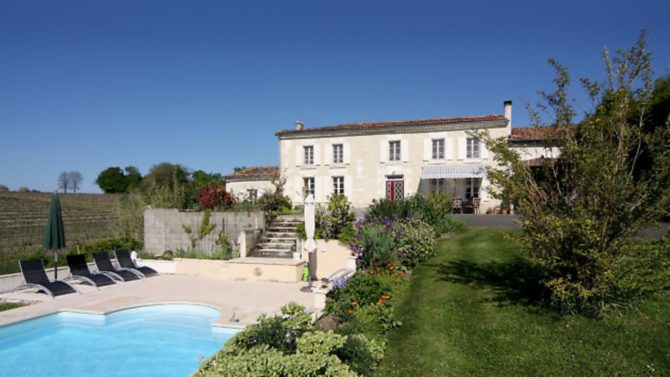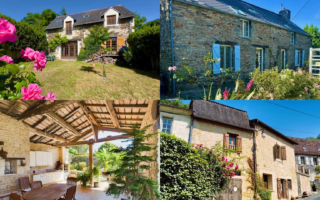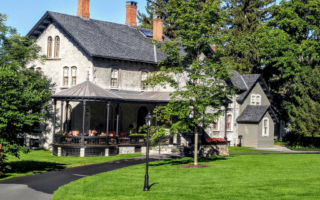5 things you need to know before you buy a French property

Do you know the French rules and regulations for electricity, gas supplys, plumbing and sewage, swimming pools and home insurance? They are very different to the UK so make sure you understand them before you buy a property in France

1. WIRING & ELECTRICITY
There are some key differences in the way that electric power is supplied and delivered in France from the way it is in the UK. The first difference, as most people know, is that French plugs are different from UK ones, with two visible pins instead of three. There are two types of French plugs, one has only two pins and contains no earth wire or fuse, instead the earth is in the wall socket, the other type of French plug has two visible pins and a hidden earth in the plug rather than the socket. In most cases you can usually still use your UK appliances, you just simply need to change the plug to the French plug with an earth, but you should check with an electrician first to make sure the appliance will still be safe to use and to check what type of sockets you have. Unlike in the UK, the electricity company doesn’t install a properly connected ‘earth’ in your French property as part of a standard connection package. This is the owner’s responsibility and the usual way of doing this is to have an independent earth connection connected to an earthing rod buried in the garden.
French houses are wired using a point-to-point electrical pattern rather than the loop (ring main) that UK homeowners are used to. The system in France involves a series of spurs running from a distribution box, and most of these can support several sockets and fittings, but major appliances such as washing machines, dishwashers and water tanks must have their own individual spur.
Electricity in France is mainly supplied by EDF. When you buy your property you are able to stipulate the kilowattage of electricity supply you require – either 6kw, 9kw, 12kw or 15kw. Three-phase electricity supply is common for rural properties in France, whereas in the UK it is generally only used in properties where there is heavy industrial or agricultural machinery. In many cases single-phase supply is perfectly adequate for normal household use. An electrical survey (a diagnostique report) is carried out before the sale of any property, which will detail any anomalies that require attention. Find out more about French plumbing and electrics

2. GAS SUPPLY
Unlike in the UK, a mains gas supply is generally only accessible in France in larger towns and cities. So, if you are moving to a rural area, bear in mind that your gas supply will most likely have to come either from a tank in the garden, or from smaller bottles of propane or butane.
Tanks can be above ground or in-ground, and are generally hired from a gas supplier. This is preferable to owning your own tank, as the supplier will handle the tank’s maintenance, servicing it annually and automatically topping it up when needed. The cost works out in the region of €300-400 per year, which can be paid monthly.
Bottled gas is widely available at most petrol stations, supermarkets and garden stores. You need to work out where you are going to store to store the bottles. Butane must be stored indoors, while propane can withstand greater extremes of temperature and can safely be kept outside in a garden shed. Read our guide to utilities and essential French vocabulary you will need to set up your utilities
3. PLUMBING & SEWAGE
Before buying a property in France, make sure you identify your hot water needs and choose an appropriate system. Most water heaters in France tend to be electric, with a storage tank for the heated water, and it is common to run these on a special tariff through EDF. Solar energy is becoming more and more popular in France too, with financial incentives offered by the government to encourage greener practice.
In the UK, washing machines and dishwashers tend to draw hot water from the main house system, using water that has already been heated. However, washing machines and dishwashers in France tend to be cold-fill only, individually heating the water to the required temperature. If you opt for an economical evening water heating system with EDF, it makes sense to only run such machines during the designated hours.
It is still quite common for rural areas of France not to have mains drainage systems. Instead properties have a septic tank (fosse septique) which takes all the waste water from the house. Modern septic tanks systems are efficient and easy to manage and require emptying every 4-5 years. When a property is sold an inspection is done and a diagnostique report is produced. This will tell you if there are any problems with the system which need fixing. If there are any problems with the septic tank you should fix them as soon as possible as there is a risk the local mairie will step in to enforce the regulations.
4. SWIMMING POOLS
Pool security became a real issue in France just over 10 years ago following the unfortunate death by drowning of a relative of the French Prime Minister at the time Jean-Pierre Raffarin. A law was subsequently instated by the Association Française de Normalisation (AFNOR), stipulating that all pools must have either approved fencing with a locking gate, an alarm (triggered either by an object falling into the water or by the breaking of an infra-red beam around the pool), or a lockable cover – or a combination of these. Unfortunately, neither DIY fencing nor an alarm purchased in the UK will satisfy the French requirements.
If a house is sold with an in-ground pool, the notaire will report it accordingly and will require proof of its security – an alarm installation certificate, for example. The fine for non-compliance with the rules can be up to €45,000, so it’s simply not worth the risk.
If you have children then it is recommended to install a tarpaulin cover supported by aluminium bars (a bâche à barres) to prevent any accidents. Read our guide to swimming pool maintenance in France
5. HOME INSURANCE
Home insurance is compulsory in France for both owned and rented properties, at least at a minimum third-party liability level – most notaires insist on this and ask to see proof of it before you sign the acte de vente. Under French law you must also have a civil liability policy (assurance responsabilité civile) to cover any accidental damage you may cause to another person or their property.
In the UK you insure with a flat rate for the cost of building replacement but in France, houses are insured according to size and number of rooms, and it is essential that you declare these correctly. Rooms that must be counted include bedrooms, sitting rooms, kitchens bigger than 30m², dining rooms, studies and libraries, games rooms and even covered enclosed terraces or conservatories. If you plan to extend your property, make sure you declare the extra space created – cover can be declared invalid if you add rooms to a house and fail to inform the insurance company.
Further recommended reading:
Share to: Facebook Twitter LinkedIn Email


